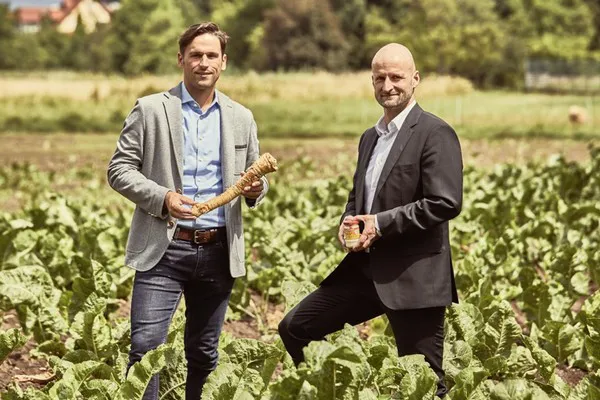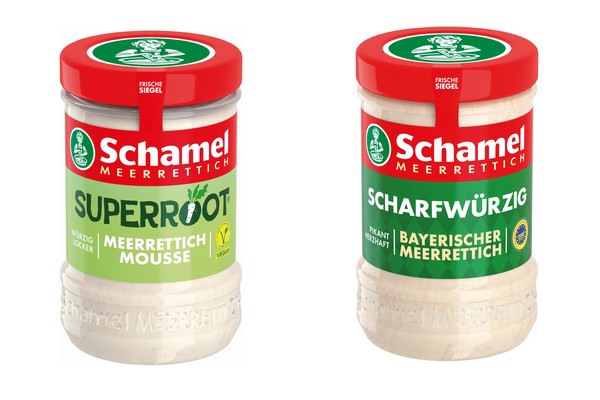Extreme weather conditions and waterlogging have significantly impacted this year's horseradish harvest in Bavaria. "After the traditional harvest start in October, there was a lot of rainfall, which meant that some farmers couldn't even access their fields. As a result, the horseradish harvest progressed very slowly, leading to a generally scarce raw material situation and supply gaps. Overall, not only in Bavaria, but also in Austria and Hungary, there have been mixed yields of mixed quality, as well as increased rejections in further processing. And the raw material situation is still very tense," describes Matthias Schamel, Managing Director of Schamel Meerrettich & Co., based in Baiersdorf.

Baiersdorf and its surroundings have a long tradition in horseradish cultivation.
In many cultivation operations in Bavaria, a portion of the crop still needs to be harvested. Schamel: "Traditionally, a portion of the crop is left outside for the second half of the season, but not to the extent as in this year's season. It is estimated that about a third of the total yield is still in the ground." Schamel is less concerned about the quality of the unharvested horseradish. "Horseradish is winter-hardy and retains its quality and nutritional values even in persistent sub-zero temperatures. Furthermore, there are no storage costs if the goods are left out in the field." Horseradish can usually be harvested until Easter.

The two-headed management of the Bavarian traditional company: Matthias Schamel (l) and Wolfgang Schöppl.
Range expansion and brand relaunch
Despite the difficult harvest conditions, a new product, called Super Root, was launched on the market shortly before Christmas. "It is a vegan horseradish puree with a somewhat milder taste, which was very well received by our retail customers. Although it is initially just one product, we are already working on the further development of the product line and variety," explains Schamel. In addition, the traditional brand underwent a relaunch in the third quarter of last year. "We have redesigned the design of our labels, so that our jars shine in a modern, minimalist, but still recognizable dress. We are convinced that the brand now stands out better on the shelf and becomes more visible."

New and well-established: vegan product line Super Root (l) and the already established, spicy table horseradish.
Future of horseradish production
Securing the raw material will also remain challenging in the coming years. "The labor cost share in demanding horseradish cultivation is very high. At the same time, many farmers cultivate the product as a secondary occupation. A structural change is currently taking place as the older generation is retiring, handing over their farms to the next generation. With our competence team, we have set ourselves the goal of also inspiring the new generation for horseradish cultivation. One of our main tasks is to make the value chain more efficient and to reduce the workload of the producers. With our new washing machine, which can also wash and process imperfect roots, we are already on the right track. Therefore, we are overall positive for the year 2024," Schamel concludes.
Pictures: Schamel Meerrettich GmbH & Co. KG
Further information:
Matthias Schamel
Schamel Meerrettich GmbH & Co. KG
Johann-Jakob-Schamel-Platz 1
D-91083 Baiersdorf / Bavaria
Phone: +49 (0) 9133 / 7760 - 31
Fax: +49 (0) 9133 / 7760 - 88
[email protected]
www.schamel.de










